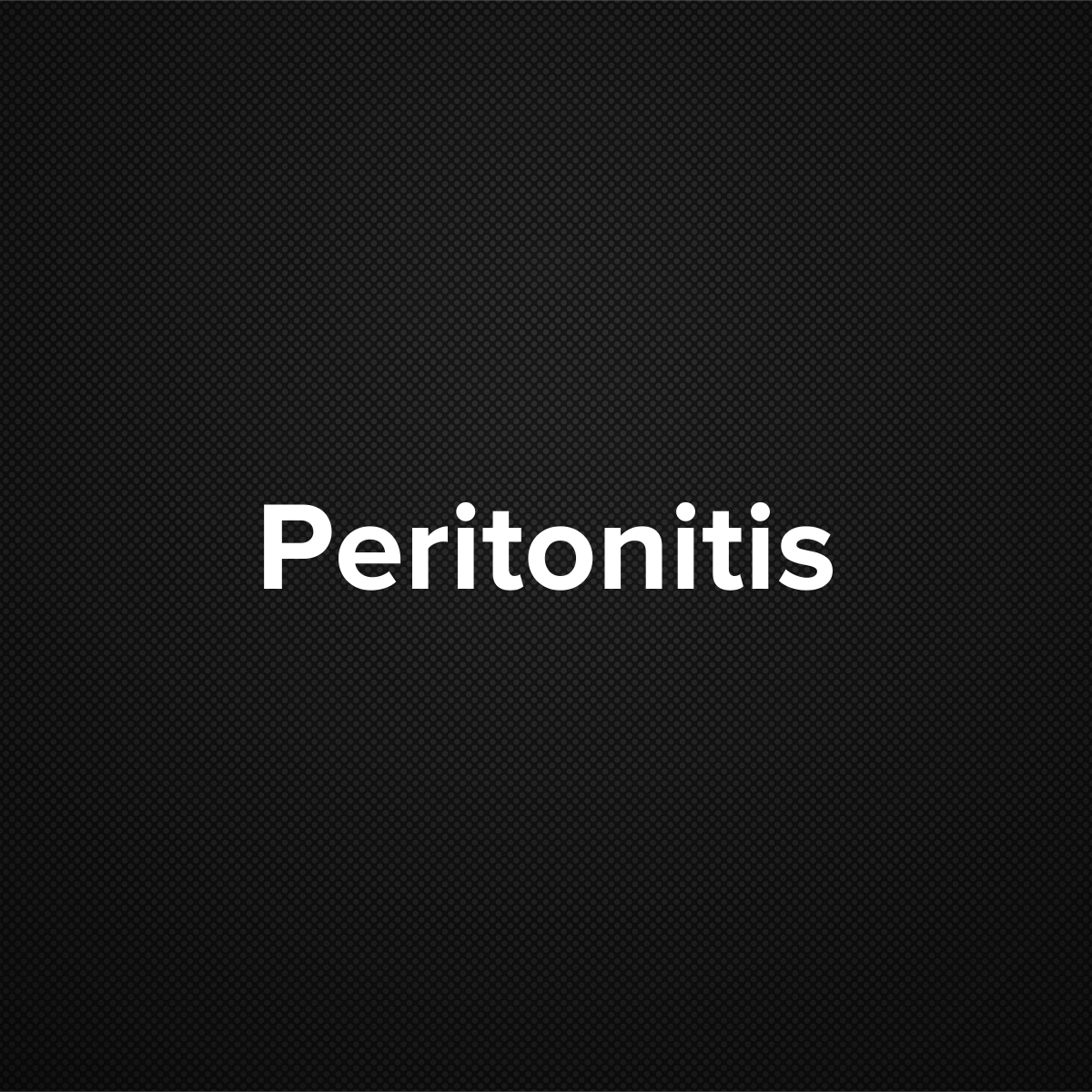Causative & risk factors
Peritonitis can be primary (spontaneous) or secondary. Primary peritonitis develops as a result of infection that begins directly in the peritoneum. Secondary peritonitis develops as a result of an extension of infection originating in the abdominal cavity.
Primary spontaneous peritonitis results from liver cirrhosis or due to peritoneal dialysis performed in patients with kidney failure.
Secondary peritonitis can result from an infection or injury to the abdominal cavity. The common causes include a ruptured appendix, peptic ulcer, perforated colon or gall bladder, diverticulitis, pancreatitis, Crohn’s disease, ectopic pregnancy, salpingitis and necrotizing enterocolitis. Any surgical procedure on the abdomen can also lead to peritonitis.
Clinical presentation
The main symptom of peritonitis is abdominal pain. It usually begins as a dull ache and becomes rapidly severe in intensity. The pain worsens on any movement. On examination, the abdomen is found to be tender and distended. He/she may develop ascites, which is the accumulation of fluid in the abdominal cavity.
The patient may develop fever with chills. He complains of nausea, vomiting and severe thirst. He may develop no urine output (anuria) or reduced urine output (oligouria). He may be unable to pass stool or flatus.
Investigations
A blood cell count and urine examination is performed. Imaging studies such as X-ray or CT scan of the abdomen are carried out. A procedure known as paracentesis may be performed to withdraw fluid from the peritoneal cavity and examine it. Laparotomy can be done as an exploratory procedure.
Treatment
Anyone diagnosed with peritonitis must be hospitalized immediately. Intravenous antibiotics or anti-fungal medications will be started as necessary. IV fluids and nutritional support will be provided as per the requirements.
The cause of peritonitis must be identified and treated accordingly. Anti-hypertensive drugs and other medications will be prescribed as necessary. Sometimes surgical excision of the peritoneal tissue becomes necessary.






























